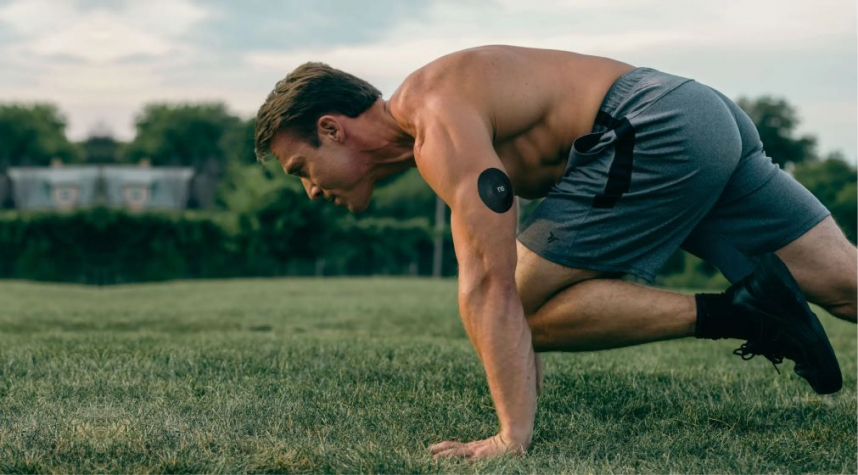
Olympians including Dutch marathon runner Abdi Nageeye are using a new tool they hope will boost their medal chances this summer: tiny monitors that attach to the skin to track blood glucose levels. Continuous glucose monitors or CGMs were developed for use by diabetes patients but their makers, led by Abbott and Dexcom, also spy opportunities in sports and wellness.
The Paris Olympics, which start on July 26, is an opportunity to showcase the technology - even though there is as yet no proof it can boost athletic performance.
"I do see a day where CGM is certainly going to be used outside of diabetes in a big way," said Dexcom's Chief Operating Officer Jacob Leach.
Diabetes patients remain the CGM specialist's commercial focus, he told Reuters, but Dexcom is also working with researchers on future use to optimize athletic performance. He would not disclose details.
The CGM market is already worth billions of dollars thanks to demand from diabetes patients, who use the coin-sized adhesive skin patches with a Bluetooth link to a smartphone instead of drawing blood through a finger stick. The readings help determine whether they need an insulin dose.
In March, Dexcom's Stelo device, targeting people with early-stage diabetes who are not on insulin, became the first CGM to win the U.S.A. approval for purchase without a prescription. The launch is planned for this summer.
Abbott introduced a CGM product for amateur and elite sports users without diabetes in Europe as early as 2020 and has sponsored Kenyan marathon great Eliud Kipchoge and his team since 2021. Top athletes and their support staff have been using CGMs to optimize calorie intake and workout intensity as they prepare for sports events.
Abbott said it is targeting the non-diabetic consumer market. On Monday (10/6) it won U.S.A. approval for its prescription-free Lingo device and smartphone app for health and well-being, available in Britain since January. Also on Monday (10/6), Abbott won U.S.A. clearance for its non-prescription system Libre Rio, for people with diabetes who do not need insulin, to compete with Dexcom's Stelo.
PREPARING FOR PARIS
Dutch marathoner Nageeye, who won silver at the Tokyo Olympics, said he and his coaches are monitoring blood glucose as an indicator of the body's available energy, part of his quest for an "effortless run". CGM use has guided Nageeye, who has qualified for Paris, to work on sleeping and eating patterns so that he expends a minimum of energy during training.
"That's your energy that's your fuel. We have to monitor that," said Nageeye. His team has been sponsored by Abbott since April 2021.
Australian swimmer Chelsea Hodges, who won relay gold at the Tokyo Olympics, said CGMs had helped her remedy bouts of extreme exhaustion and dizziness during endurance training by making adjustments to her calorie intake and training times. She spoke to Reuters while preparing for Paris, but recently ended her swimming career due to hip problems.
While companies see growth potential in the gadgets, sports nutrition scientists see a promising field of research.
"A big guesswork for endurance athletes has always been: am I training hard enough or am I training too hard? It seems with CGMs, we have a better understanding," said Associate Professor Filip Larsen of the Swedish School of Sport and Health Sciences.
Larsen, also chief science officer of sports performance consultancy firm Svexa said the firm has been analyzing CGM data collected by several athletes and teams. He said Svexa is not sponsored by any CGM maker. Larsen warned, however, that there was little validated science yet on how to optimize an athlete's routines using CGMs.
"Most researchers cannot give you the exact answers. In five years, we will know 10 times as much as we do now."
But the field is abuzz with trials and experiments, including work on glucose-measuring contact lenses.